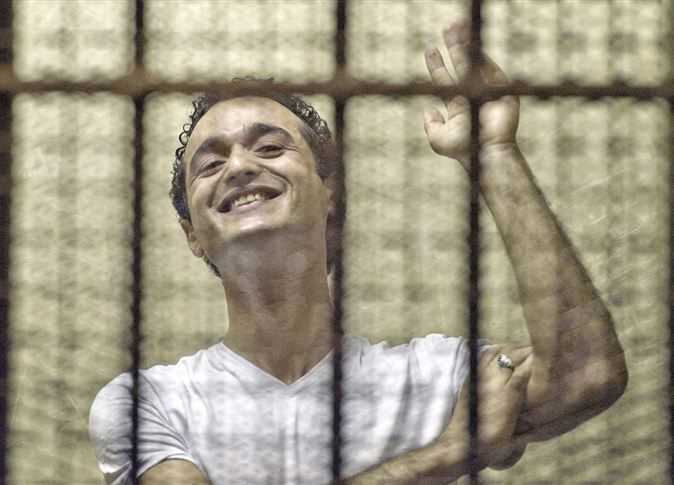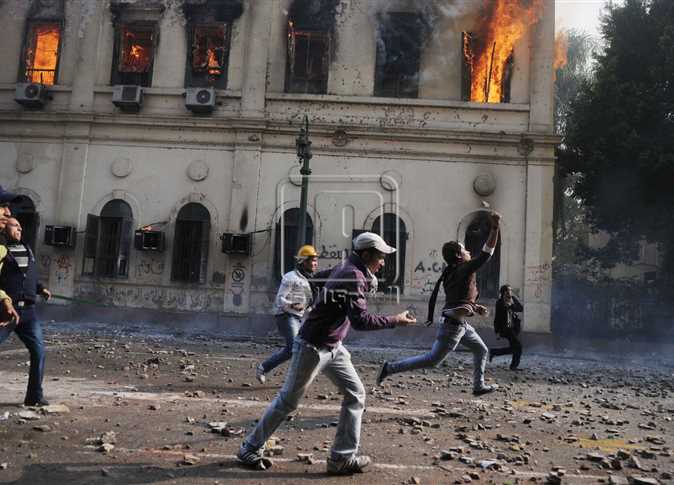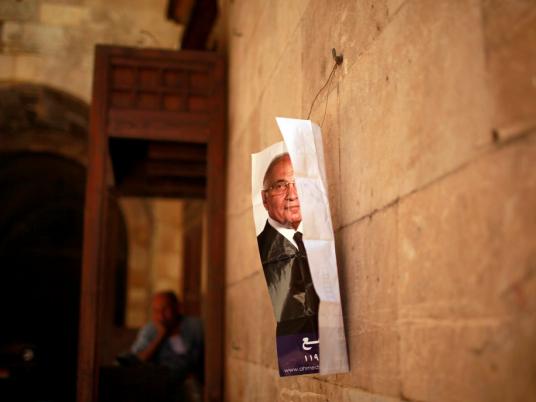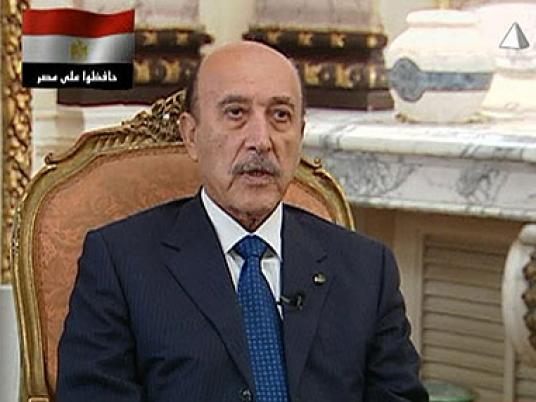Days after the breakout of the 25 January revolt and before the ouster of Hosni Mubarak, his chief spy, Omar Suleiman, proposed a long and detailed legalistic plan to solve Egypt’s political impasse. Suleiman was planning to buy time until Mubarak’s official term expired in six months. The proposal included the introduction of constitutional amendments and the dissolution of Parliament by enabling the Court of Cassation to invalidate the fraudulent membership of the MPs. The idea behind Suleiman’s proposal was simple: deny any form of revolutionary legitimacy and subject any political demands to legalistic and procedural measures set by the regime itself. In other words, it was a practical move to contain the upheaval of the revolution. Fortunately enough, the people in Tahrir Square were adamant on killing Suleiman’s plan, especially after the Battle of the Camel. Mubarak had to consequently step down in a move that effectively annulled the 1971 Constitution.
Mubarak and Suleiman faded politically, but their plan lingered on, only to be utilized by the Supreme Council of the Armed Forces. The junta’s implementation of Suleiman’s proposal started with the March 2011 constitutional referendum, which caused a deep chasm within the revolutionary bloc by dividing it into an Islamist majority and a secular/civil minority. Shortly afterwards, the SCAF issued the Constitutional Declaration, acquiring a legitimate cover for its de facto ruling of the country. From then on, the junta directed the transitional period single-handedly by issuing laws and decrees regulating political freedoms and rights. The SCAF’s legalistic approach to the power grab was supported by the Islamists in general and the Brotherhood in particular, as the latter saw the junta’s stalling of the transitional period as an opportunity to hold elections before the drafting of a permanent constitution. Their bet on the SCAF-led process contributed to deepening the split within the revolutionary bloc. Meanwhile, the SCAF dismissed any proposals of special or political courts for the members of the ousted regime. They rather opted for regular prosecutions and courts, referring a series of criminal cases against former regime figures, which included no political charges, to the judiciary.
Egypt’s civilian political powers, including the Brotherhood, were slowly drawn into the web of legalistic and procedural entrapment set up by the military. They were required to play by the old regime’s rules, which have always been anti-political and often substituted politics with a legal labyrinth.
Only through this debunking of the SCAF’s manipulation of the legalistic terrain can we really understand how Parliament was recently disbanded by the Supreme Constitutional Court. This also explains how both the judiciary and bureaucracy scrutinized presidential candidates and could easily exclude influential ones like Khairat al-Shater and Hazem Salah Abu Ismail without much fuss. Various political forces, including the Brotherhood, subscribed to the legalistic approach proposed by the military to shape the post-Mubarak order. They chose willingly to play according to rules that they had no say in shaping or implementing, and that were legislated by their very rivals, who had vested interests in defending the old order.
The current moment seems to be quite critical for the future of the Egyptian revolution. On the one hand, Egypt’s burgeoning political sphere is likely to be regulated for a long time to come through authoritative interventions by the junta, the bureaucracy and the judiciary. The disbanding of the Parliament and the issuance of the complementary Constitutional Declaration by the SCAF are two serious precedents. The situation is likely to be codified in Egypt’s upcoming permanent constitution that will be covertly drafted by the military.
On the other hand, the presidential elections pose a real and potentially lethal threat to the continuity of the revolution. The Brotherhood’s candidate seems to be running against the state, which happens to be the one regulating the elections. Hence, the state stands as both the rival and the arbitrator in an unfair game. If Ahmed Shafiq wins in seemingly free and fair elections — similar to what happened in the first round — the old interest groups will have won themselves democratic legitimacy. This would lead to the reproduction of old power and wealth networks, and thus the virtual end of the revolution in an open political battle based on free elections. If this happens, the destiny of post-revolution Egypt will be approaching the Romanian scenario where the old guard rid themselves of Nicolae Ceausescu and his clique only to save the regime.
Amr Adly is director of the Social and Economic Justice Unit at the Egyptian Initiative for Personal Rights (EIPR) and has a PhD in political economy.




